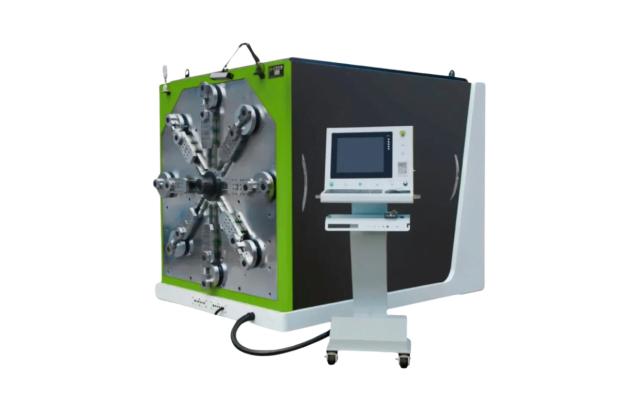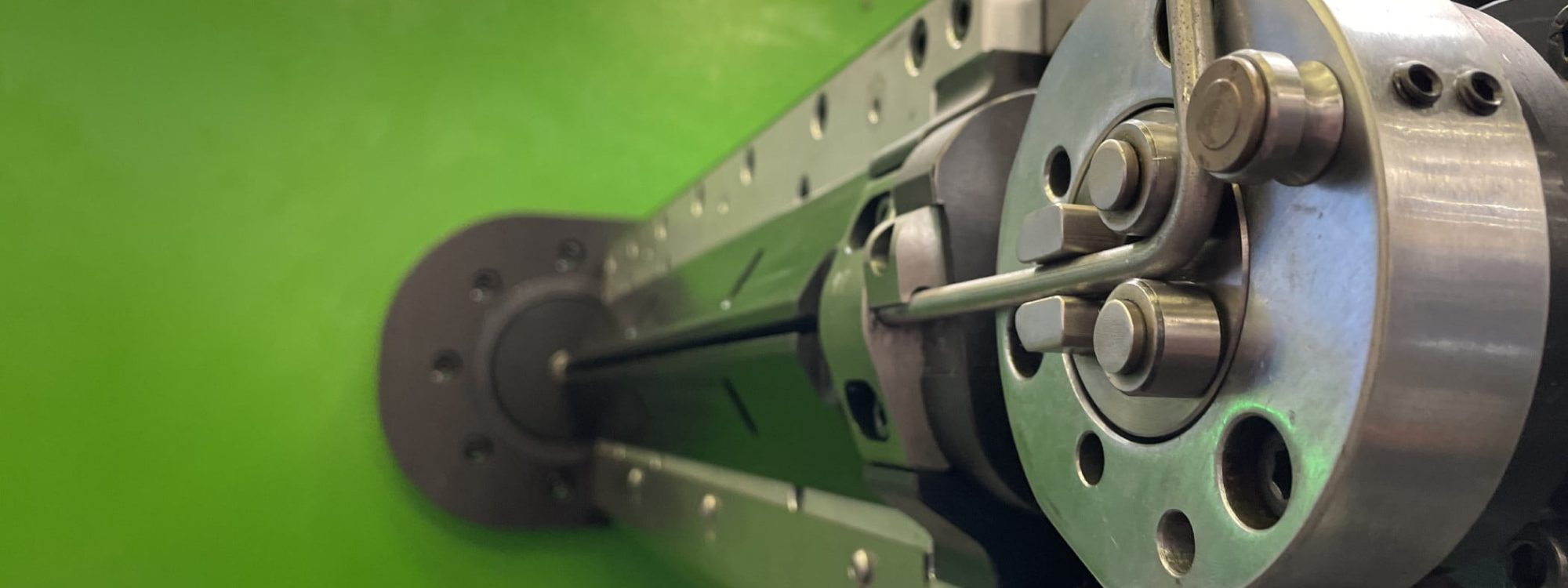
For more than 50 years, Pneuform has been a leading name in the manufacture of wire forming and small-diameter tube bending machines. Pneuform was the first company to produce CNC programmable, 2-axis tube and wire bending machines – bringing them to market in the late 1970s.
Pneuform then went on to develop the world’s first 3-axis wire bending machines in the 1980s and, since then, has stayed at the forefront of wire and small-diameter tube bending technologies.
Today, as a member of the Unison family, Pneuform continues to lead the way in the design and build of specialist wire and small-bore tube bending machines. Exciting new wire and small-bore tube bending machines are in the pipeline, supported by Unison’s advanced user-friendly control systems and simulation software, and backed by its legendary service and support team.
Where high-volume production is required, and the material can come from coils, the Pneuform range of machines can solve most of your applications.


In welcoming Pneuform to the Unison family, we look forward to developing new machines and enhancing the business’s existing, excellent machine tool range with our advanced, user-friendly control systems and simulation software.
Pneuform’s range of rotary head bending machines includes models capable of bending mild steel wire of 3 mm to 16 mm in diameter, and tube of up to 20 mm diameter.
Precise 5- to 7-axis operation, with Yaskawa drives, fully utilises the bending head around the component for accurate, complex bends. Unison software ensures easy programming, including the de-coiler and tooling.
Optional heading machines and press stations are available for secondary operations.
Typical wire components produced include automotive head restraints, exhaust hangers, ISO fix wires, seat rails, retail and POS display parts and wire forms.
Typical tube products include: tube brewery coolers and air-conditioning pipework.

Pneuform twin head machines can bend wire of 3 mm to 6 mm in diameter, or tube of 3 mm to 10 mm in diameter. Offering up to 16-axis bending capability, and equipped with quality Yaskawa servos, Pneuform twin head machines feature industry-leading Unison controls.
Utilising a special clamping mechanism, long, straight components are bent from the outer towards the centre, before being transferred to an output conveyor.
Typical components produced include: bundy brake lines, car seat frames, lumbar supports and trim wires.
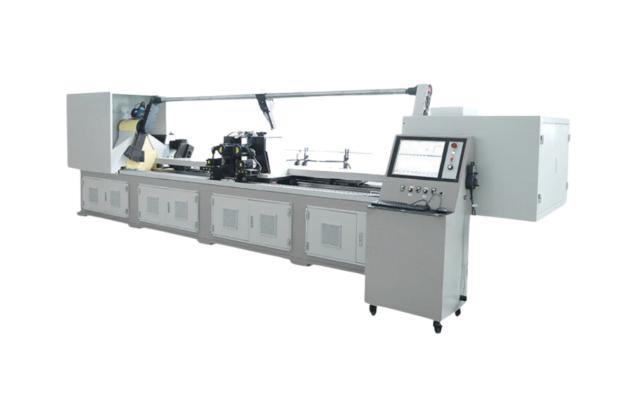
Pneuform rotating wire 3D bending machines are capable of bending mild steel wire of 3 mm to 10 mm in diameter, and tube of up to 14 mm in diameter. Versatile 7-axis operation and high quality Yaskawa drives ensure accurate bending of even the most complex shapes. While the process of utilising the rotation of the wire, rather than moving the head around the part, further assists production. A key feature of the design is each machine’s rise and fall table, which provides reliable part support and offers different manufacturing possibilities. Unison software ensures easy programming, including the de-coiler and tooling. Optional heading machines and press stations are available for secondary operations.
Typical wire components produced include automotive head restraints, exhaust hangers, ISO fix wires, seat rails, retail and POS display parts.
Typical tube products include: tube brewery coolers and air-conditioning pipework.
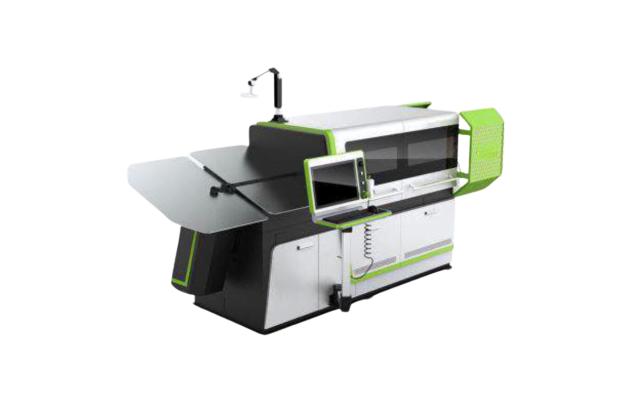
Pneuform’s immensely flexible 10-axis wire stripping and bending machines are specially designed for the precise, rapid production of many of the electrical components used in automotive manufacturing, bus bar wires and other electrical parts. The machine straightens the wire, strips the coating (primarily enamel), bends, then cuts as required to provide a complete solution. For greater freedom of bend angles, the machine face rotates around the wire, while a vacuuming feature clears away all waste enamel. Like all Pneuform machines, our wire stripping and bending models benefit from Yaskawa servos and Unison controls.
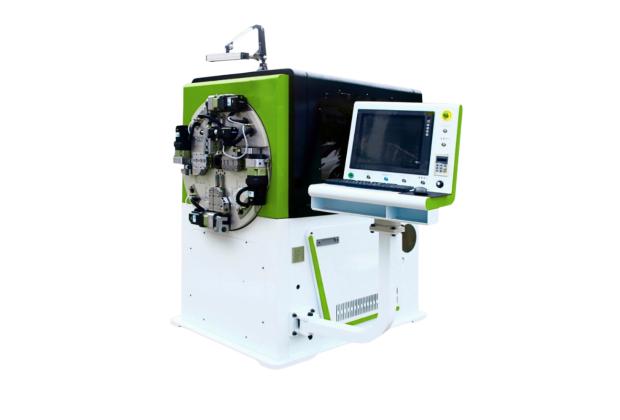
Pneuform bus bar bending machines are designed specifically for producing bent and pierced strip components. These are primarily made from coated or uncoated aluminium and copper, ranging from 2 mm to 8 mm in thickness, and up to 45 mm in width. Parts produced are generally for electrical bus bars for distribution boxes, parts for use in electric vehicles, and battery bars.
Models range from 12- to 15-axis variants, depending on required options. These include stripping, piercing, stamping, chamfering, grooving and sawing. During the production process, parts are fed between protective belts to avoid any marking of soft outer coatings, such as PVC. A range of de-coiling options is also available to suit specific material sizes and types. Like all Pneuform machines busbar and strip bending models benefit from Yaskawa servos and Unison controls.
